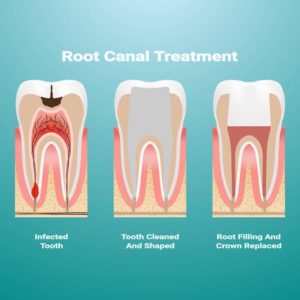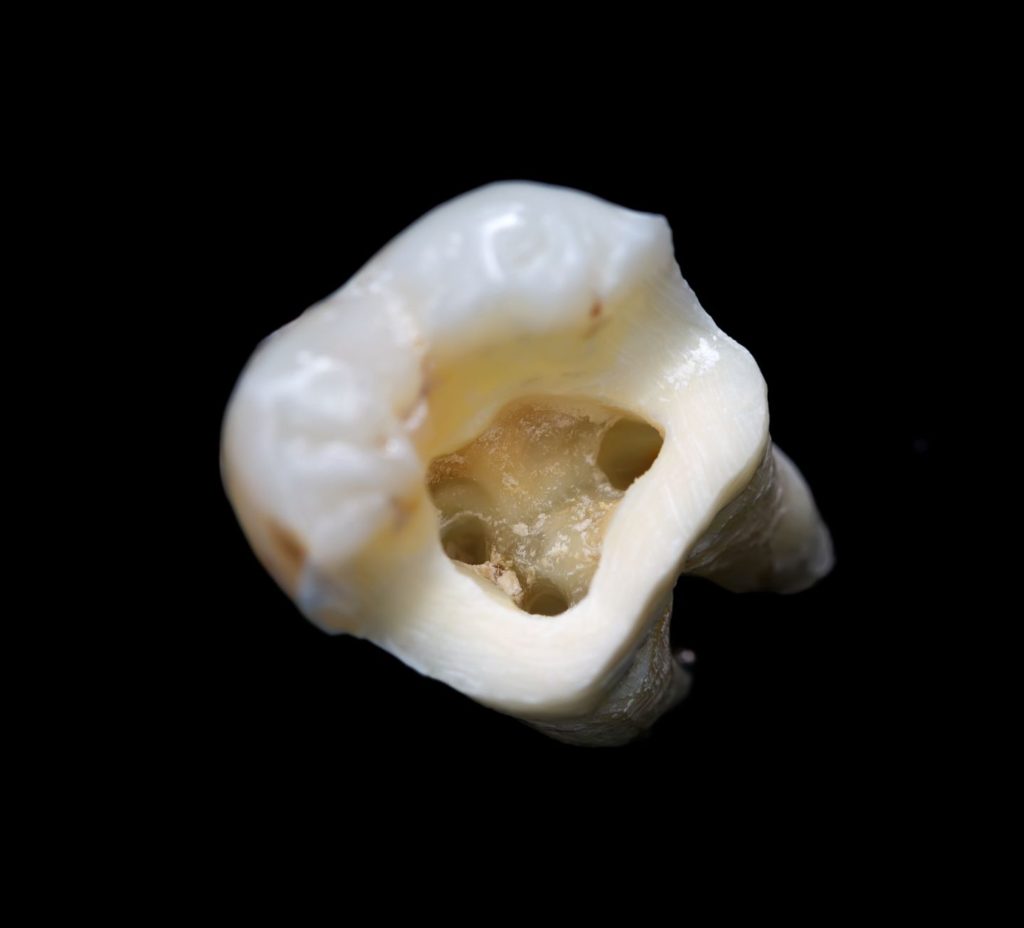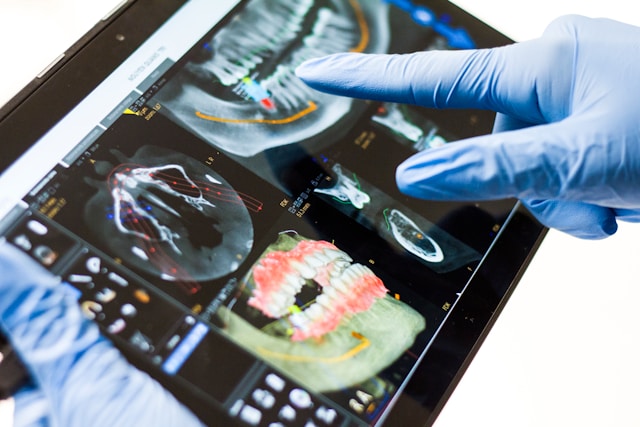A Root Canal Treatment, or an RCT, is one of the most common procedures done by dentists around the globe. The American Association of Endodontists states that over 15 million RCTs are performed in a year in the US.
But before we get into the details of the treatment, let us take a quick look at the structure of our tooth.
The Tooth
The tooth consists of two parts – the exposed part, called the crown, and the one underneath the gums called the root. And the tooth isn’t a solid structure through and through.
- There’s the hard outer surface, called enamel.
- The soft and spongy inner layer, called dentin, which supports the enamel.
- The root has a hard outer surface, called cementum.
- And in the center of it all, lies the dental pulp.
The root canal contains the dental pulp, and it extends from the crown to the root of the tooth. These also consist of the nerves, arteries, veins, and other cells that maintain the growth and health of the tooth.

Root Canal Infections
There are various causes as to why a root canal may be infected. But the starting point is always some kind of trauma that might’ve occurred to the tooth. A crack, a chip, a fracture (to either the crown or the root), damage to the pulp (with or without visible damage to the exterior), and repeated procedures – these are only some of the causes of root canal infections. But the most common cause is tooth decay.
Tooth decay can start off either on the surface on the enamel, or the cementum. And if left untreated, the disease may progress through the dentin, and reach the pulp. The bacteria and decaying material can then cause inflammation, and the spread can lead to serious infections. As a result, it can cause abscesses and even pulp death.
Symptoms of Root Canal Infections
- Teeth Pain: Root canals that are infected cause acute, and severe pain. But not all toothaches are a result of an infected canal. And just because you have a toothache, doesn’t mean you require root canal treatment. In some cases, teeth that require root canal treatments might not hurt at all. The key lies in determining the onset, location, duration, and character of the pain you’re feeling. If you feel any of the following, you likely require a root canal treatment –
- Severe pain on chewing
- Pain on putting any kind of pressure on the affected tooth
- Pain that won’t let you sleep at night
- Spontaneous pain (intermittent or continuous)
- Sensitivity to heat or cold
- Swelling or tenderness in the gums: The surrounding tissues get affected in cases of extreme infections, sometimes even causing facial swelling. Similar to toothaches, inflammations don’t always indicate root canal infections. But here are certain signs that point in the direction of –
- Swelling that lasts for a long time
- A pimple-like swelling at the base of the gums
- Pronounced or recurring swelling
- Pain in the gum on touching or applying any pressure (tenderness)
- Bad breath: If you feel like you’ve had bad breath despite maintaining proper oral hygiene, there’s a chance that there’s a festering infection somewhere. The bacteria, along with the dying pulp create pockets of pus around the tooth. These are called abscesses and they might leak a foul-smelling liquid. This, in turn, causes bad breath and also leaves a bitter taste in the mouth.
- Tooth Discoloration: A tooth that has developed a color change (dark yellow, blue, or gray) is infected. The limited blood flow, along with the infection and dying pulp tissue causes this particular change. If you notice a color change, even without any accompanying pain, it is best to take a trip to your dentist at River Rock Dental.
What Does A Root Canal Treatment Entail?
Root Canal Treatments are done to prevent the further spread of infection and also the possibility of extraction. Because having as many of your natural teeth as possible is the true goal.
A typical root canal treatment entails two or more visits to the dentist, depending on the status of the tooth. The procedure is done under anesthesia, so you don’t feel any pain.
- The initial examination includes looking at the area of infection and taking dental X-rays to assess the tooth’s condition.
- A local anesthetic is given to prevent any pain or discomfort during the procedure. The infected tooth is isolated using a ‘rubber dam’.
- A hole is drilled into the tooth, and special tools are used to remove the necrotic (dead) tissue.
- Once the infected tissue has been removed, your dentist will either seal the tooth on the same day or give you a temporary filling. Sealing the tooth involves placing a rubber compound in the root canal, and placing a filling over the access hole.
- A dental crown is always advised on a tooth that has undergone a root canal treatment. Failure to get a crown might result in either re-infection or fracture of the tooth.
- Sometimes, your dentist might leave the access hole open to drain any remaining infection. However, this doesn’t mean that the treatment is complete. You will have to revisit your dentist for the final sealing and filling.
Root Canal Treatment – Aftercare
As mentioned previously, getting a crown or any other tooth restoration is very important.
Patients have to be extra mindful of their oral hygiene if they’ve undergone a root canal treatment. Flossing around the crown, using anti-septic mouthwashes is always advised. Getting your teeth cleaned by a professional twice a year is also paramount.
If you experience any soreness or discomfort after the root canal treatment, you can take over-the-counter pain medication to help. In rare cases where the pain is unbearable, please visit your dentist.
Studies show that root canal treatments have a 95% success rate, and a treated tooth can last a lifetime.
Our highly skilled team at River Rock Dental is here to serve you for your needs. If you or a loved one has had a toothache, or simply want a consult, please call us at (952) 445 5556 today! And don’t worry! Aside from having a proficient staff, we are also committed to a warm and welcoming environment, and giving you a healthy, confident smile.






